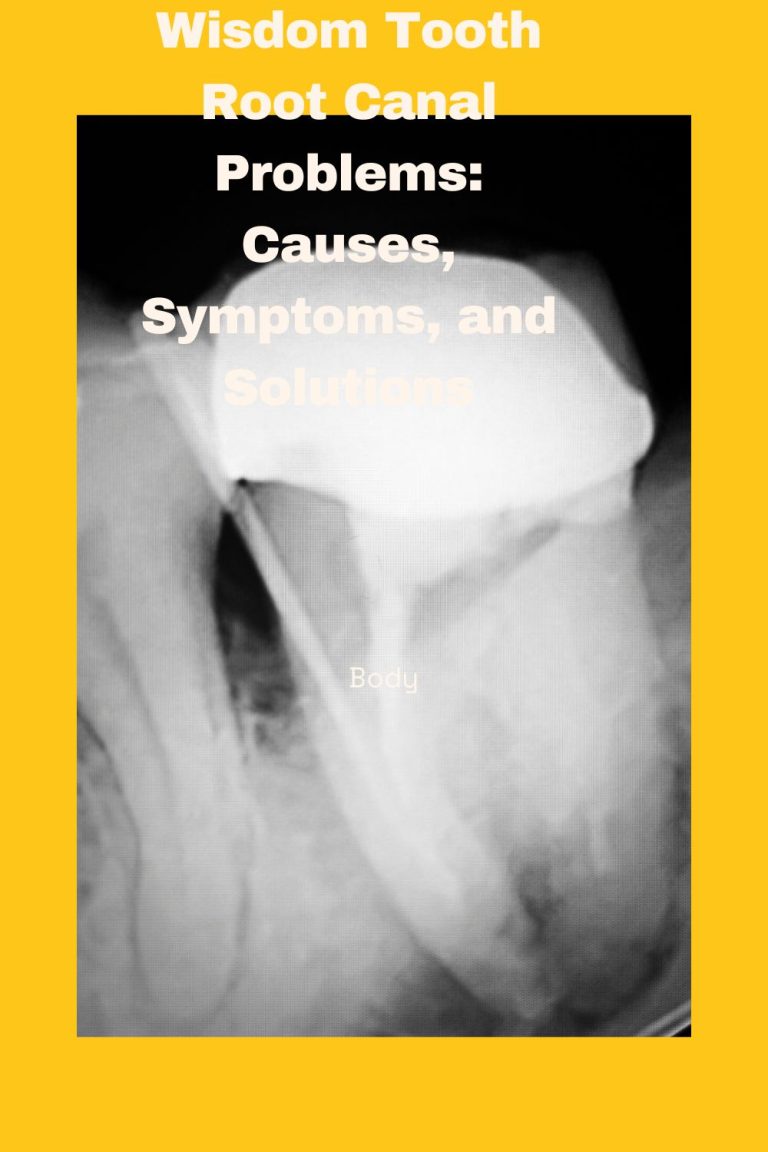Can a Dds Masterfully Perform a Root Canal Procedure?
Last Updated on 6 months by DR. ALBIN SIPES
Yes, a dds can perform a root canal procedure. A dds has the knowledge and skills to diagnose and treat dental issues, including performing root canals.
When it comes to dental procedures, root canals are often a topic of discussion. Many people wonder who is qualified to perform this procedure. The answer is that a dds, or doctor of dental surgery, is capable of doing a root canal.
A dds is a dental professional who has undergone extensive training in diagnosing and treating dental problems. They possess the necessary knowledge and skills to carry out a root canal procedure effectively. In this article, we will explore the role of a dds in performing root canals, the process involved, and how this procedure can help preserve and restore a patient’s oral health.

Credit: tryonfamilydentistry.com
Subheading 1: Understanding The Role Of A Dds In Dental Care
A dds, or a doctor of dental surgery, plays a crucial role in providing proper dental care. With their expertise in oral health maintenance, dds professionals are trained to perform various dental procedures, including root canals. Root canals are essential for treating infected teeth and eliminating dental pain.
They involve removing the infected pulp and filling the tooth to prevent further damage. By utilizing their extensive knowledge and skills, ddss ensure that patients receive the necessary dental care to maintain optimal oral health. Regular dental check-ups and cleanings are essential for preventing dental issues, as they allow ddss to identify and address any potential problems early on.
By visiting a qualified dds regularly, individuals can ensure that their dental health is in good hands.
Subheading 2: What Is A Root Canal Procedure?
A root canal procedure can indeed be performed by a dentist with a dds degree. This dental treatment involves removing the infected pulp from the inside of a tooth and then sealing it to prevent further damage or infection. During a root canal, the dentist will carefully clean the pulp chamber before filling it with a special material.
This procedure is often necessary when tooth decay or trauma has caused the tooth’s nerve to become infected or damaged. Common reasons for needing a root canal include severe toothache, sensitivity to hot or cold, swelling around the affected tooth, or deep decay.
It is important to seek prompt dental care if you experience any of these symptoms to prevent further complications.
Subheading 3: Skills Required For A Dds To Perform A Root Canal Procedure
A dds, or doctor of dental surgery, is qualified to perform a root canal procedure. However, it requires certain skills for a dds to carry out this complex dental treatment successfully. Firstly, an in-depth knowledge of dental anatomy is essential.
They must have a thorough understanding of the structure and function of teeth and surrounding tissues. Additionally, expertise in pain management during the procedure is crucial. A dds must be skilled in administering local anesthesia and ensuring patient comfort throughout the root canal.
Lastly, precision in performing intricate dental work is necessary. A root canal involves removing infected pulp and cleaning the root canals before filling and sealing them. A dds must possess the dexterity and attention to detail required to execute these precise tasks accurately.
Overall, a dds with the appropriate skills can indeed perform a root canal procedure effectively.
Subheading 1: Education And Training For Ddss
Ddss are qualified to perform root canals due to their rigorous academic and clinical training. This includes a comprehensive education and training program that equips them with the necessary knowledge and skills. Ddss undergo continuous professional development to stay updated with the latest advancements and techniques in dental procedures.
Through ongoing learning and experience, they ensure the highest level of care for their patients. Their education and training encompass not only the theoretical aspects but also practical hands-on experience. This ensures that ddss are well-prepared to handle complex procedures like root canals effectively and efficiently, providing patients with the highest quality of dental care.
So, if you’re wondering whether a dds can perform a root canal, the answer is yes, they are fully trained and capable of doing so.
Subheading 2: The Comprehensive Understanding Of Root Canal Therapy
A dds, or a dentist, is qualified to perform a root canal treatment. The process involves a comprehensive understanding of dental pulp and infection, which are the main issues addressed during the procedure. Dentists are familiar with various treatment techniques and tools utilized during a root canal.
They possess the expertise to diagnose and effectively manage any complications that may arise during the treatment. With their skills and knowledge, ddss are capable of providing patients with the necessary care and relief they need when facing dental pulp infection.
So, yes, a dds is well-equipped to perform a root canal therapy.
Subheading 3: Experience And Expertise In Root Canal Procedures
The expertise and experience of a dds are crucial in performing root canal procedures. Hands-on experience is of utmost importance, enabling dentists to gain the necessary skills for successful treatments. Continuous learning through case studies and staying updated with advancements in the field further enhances a dentist’s expertise.
By regularly practicing and experiencing various root canal cases, ddss develop a comprehensive understanding of the procedure and its challenges. This practical knowledge allows them to efficiently diagnose and treat patients, providing effective solutions for root canal issues. Hence, a dds with experience and expertise in root canal procedures is highly competent in delivering successful outcomes.
Subheading 1: Building Trust And Confidence
A dentist with a doctor of dental surgery (dds) degree is definitely qualified to perform a root canal procedure. Building trust and confidence with patients is crucial in any dental practice. Establishing rapport with patients helps to create a comfortable environment where they can openly express their concerns.
When explaining the root canal procedure, it is important to be clear and concise, addressing any worries or anxieties they may have. By discussing each step and the expected outcome, patients can feel more at ease and trust the dentist’s expertise.
Patient education plays a vital role in alleviating any misconceptions or fears surrounding root canals. Through effective communication and a compassionate approach, a dds can successfully perform root canals while ensuring patient trust and confidence.
Subheading 2: Effective Communication And Patient Education
A dds is qualified to perform a root canal, which involves removing infected pulp from the tooth. Effective communication during the procedure is crucial, ensuring that the patient feels informed and at ease. Clear and concise explanations of the process can help alleviate any concerns or anxiety.
It is also important for the dentist to educate patients about post-treatment care and expectations. By providing guidance on proper oral hygiene and what to expect after the procedure, patients can better understand the importance of maintaining their dental health.
Empowering patients with knowledge allows them to take an active role in their own oral care and recovery. Through open communication and patient education, a dds can ensure a successful root canal experience for their patients.
Subheading 3: Incorporating Technological Advancements
A highly skilled and competent dentist with a dds degree is certainly qualified to perform a root canal treatment. With the incorporation of technological advancements in dentistry, dental professionals are now able to utilize modern dental equipment and technology to enhance precision and reduce patient discomfort.
By leveraging state-of-the-art tools and techniques, such as digital imaging and laser technology, dentists can now accurately diagnose the problem and efficiently perform root canal procedures. These advancements not only allow for more effective treatment but also significantly improve patient experiences by minimizing pain and ensuring faster recovery.
So, if you’re wondering if a dds can perform a root canal, rest assured that they are fully capable thanks to the utilization of modern dental equipment and technology.
Frequently Asked Questions For Can A Dds Do A Root Canal
Can A Dds Perform A Root Canal Procedure?
Yes, a dds (doctor of dental surgery) is qualified and trained to perform root canal treatments. They have the necessary skills and knowledge to diagnose and treat dental problems, including root canal procedures.
What Is Involved In A Root Canal Treatment?
During a root canal procedure, the dentist removes the infected pulp from the tooth, cleans and disinfects the root canals, and then fills them with a dental material. This helps to alleviate pain and save the tooth from further damage or extraction.
Is A Root Canal Procedure Painful?
With modern advancements in dentistry, root canal treatments are generally not painful. Dentists use local anesthesia to numb the area being treated, ensuring you are comfortable during the procedure. Post-treatment, any discomfort can be managed with over-the-counter pain medications.
How Long Does A Root Canal Treatment Take?
The duration of a root canal procedure depends on the tooth’s complexity and the severity of the infection. Typically, it can take about 1 to 2 hours. However, multiple visits may be required for complicated cases or in situations where a tooth requires additional restoration, like a dental crown.
What Are The Alternatives To A Root Canal Procedure?
If a tooth is severely damaged or infected, a root canal treatment is often the most effective option to save the tooth. The alternatives are tooth extraction, which can cause other dental issues, or leaving the infection untreated, leading to further pain and damage to surrounding teeth.
It is best to consult with your dentist to determine the most suitable treatment plan.
Conclusion
A dds (doctor of dental surgery) can indeed perform a root canal procedure. Root canals are a common treatment for tooth decay or infection that has reached the innermost part of the tooth, called the dental pulp. With their advanced training, dds professionals are equipped to diagnose and treat various dental issues, including root canal treatments.
By utilizing their expertise and specialized tools, they can effectively perform the necessary steps, such as accessing the tooth’s pulp, removing infected or damaged tissue, cleaning the root canals, and filling them with a suitable material. It is important to consult with a qualified dds to assess the specific oral health condition and determine the most appropriate course of action.
Seeking prompt dental care and following up with regular check-ups can help maintain optimal oral health and prevent more extensive treatment down the line.



